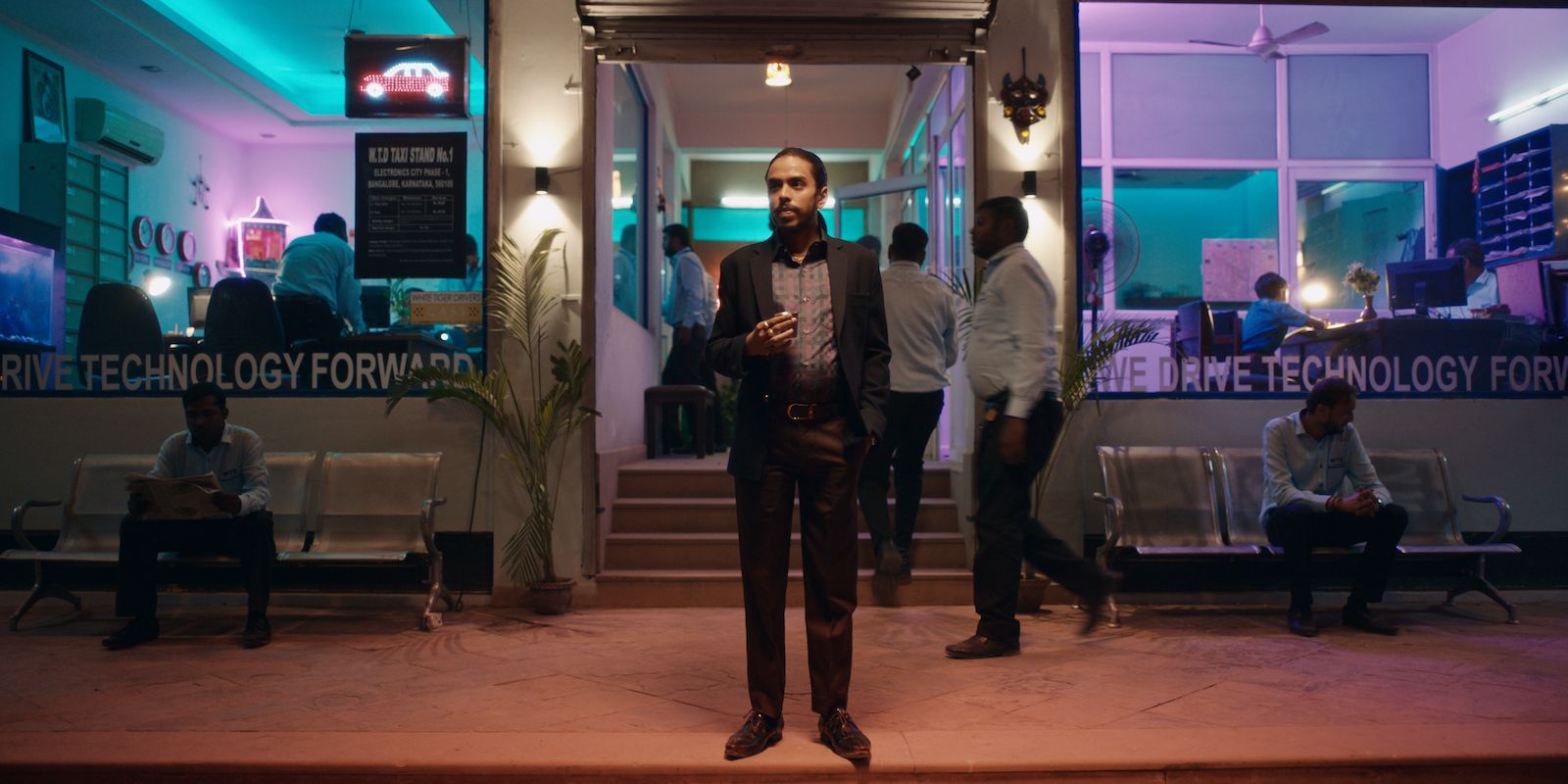The White Tiger is a tale of striving and success in India. Adapted from Aravind Adiga's Booker-prize winning novel of the same name by Ramin Bahrani, who also directs, it tells the story of one man’s journey from lowly servant to master entrepreneur, but its themes and ideas are universal. It’s a challenging, thought-provoking film that doesn’t give any of its characters a free pass. And although it provides the context necessary to understand many of their actions, there’s a baked-in irony that ensures none of its conclusions are simple.
The movie is narrated by protagonist Belram Halwai (Adarsh Gourav) in the form of a letter he writes to the Chinese Prime Minister who is coming to visit India to learn about its growing economy. He’s writing in 2010 from his position as a successful entrepreneur, but Belram has unique insight because he started out as a servant, a position the country's business practices make it almost impossible to move up from. Belram was born to a large, poor family. Although he showed an early aptitude in school, he soon has to abandon his lessons to help support his family by working in the local tea shop. Belram's expected path in life was already laid out before he was born: he will work to support the family as a servant, bringing in just enough money to pay off their landlord and keep food on the table, he will marry a woman his family chooses and the cycle will repeat itself with his children. Yet, Belram’s early promise let him believe he could be something more -- a white tiger, a creature who, according to Indian lore, is only born once in a generation.
Initially, this means Belram expects to move on from the tea shop to a position with a wealthy family. He finally lands a job as the second driver for his landlord, and then when the landlord’s youngest son Ashok (Rajkummar Rao), moves to Delhi, he maneuvers his way into driving for him. Ashok has recently returned from America where he met and married his wife Pinky (Priyanka Chopra Jonas, also an executive producer). In contrast to the rest of his family, Ashok's experience abroad has given him a different perspective on the divisions embedded in Indian society, especially those of class and gender. That makes him kinder than his father or older brother, but perhaps even more oblivious. Then, when Pinky hits and kills a child while driving drunk on her birthday, the family has Belram sign a confession saying he was at fault. This opens Belram's eyes, leading him to realize nothing will ever change for him unless he makes it.
While Belram’s plight is sympathetic and his actions have a rational explanation, he proves to be a distinctly slippery character. As someone from a lower caste, he has been brought up to believe his only future lies in serving those more fortunate. Yet, it’s hard to tell how much of his studied subservience is a performance and how much he believes. While he expertly takes on many roles in Ashok’s life, from driver to caretaker to friend to confidante, his chameleon-like ability to be whatever his master needs makes it hard to locate the real Belram. Layered on top of this is the narration supplied by a version of Belram whose long, slicked-back hair, flashy clothes and flexible attitude signify his success has fundamentally changed him, making Belram a character who's both easy to like and hard to fully grasp.
Gourav does an impressive job capturing Belram’s complexities and contradictions. The actor makes Belram someone you want to root for even when you recoil at some of his actions, a characteristic that’s essential to making the movie as enjoyable as it is. Rao and Chopra Jonas turn in equally strong performances. As Ashok, Rao treads a line between personal aspirations, family loyalty and American ideals that exemplify both his confusion and his privilege. Yet, while Ashok frequently does the wrong thing, Rao never makes him feel like a villain. Meanwhile, Chopra Jonas makes Pinky liberated and enlightened in a way that allows her to serve a key role in Belram's evolving perspective, even as her American upbringing gives her significant blind spots.
This is a beautifully made film with especially noteworthy writing, directing, editing and cinematography that takes Belram from the slums of India to Delhi's grandest hotels. But the production doesn’t just highlight the differences between the haves and have-nots, it also outlines the country's economic and social systems while never providing easy answers. So while The White Tiger is told with a stylish flare that makes it interesting and immersive, it isn’t the kind of thing you throw on in the background on a Saturday night. It’s a challenging but rewarding film that will keep you pondering the issues it presents -- and what they say about similar class struggles in America and elsewhere -- long after the credits roll.
The White Tiger, written and directed by Ramin Bahrani and starring Adarsh Gourav, Rajkummar Rao and Priyanka Chopra Jonas, is in select theaters on Wednesday, Jan. 13 and will be available on Netflix on Friday, Jan. 22.



